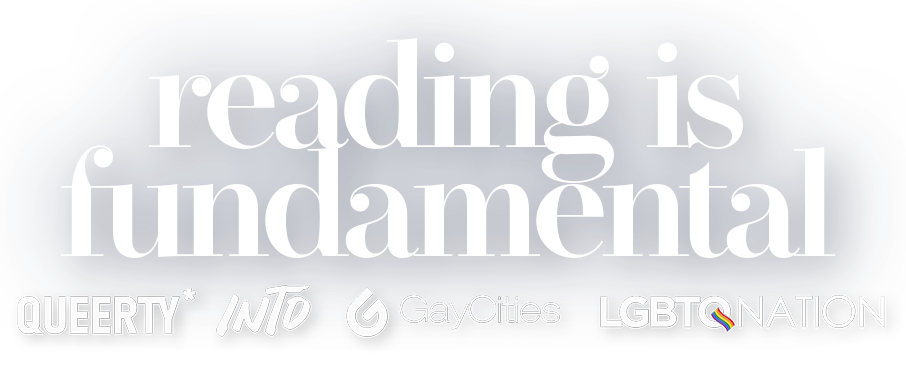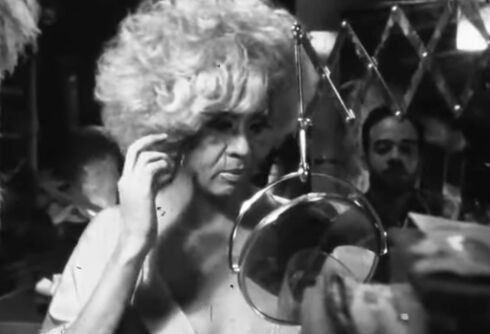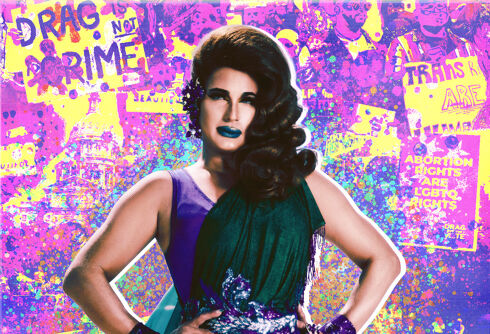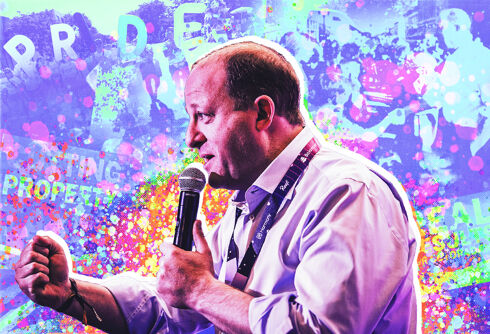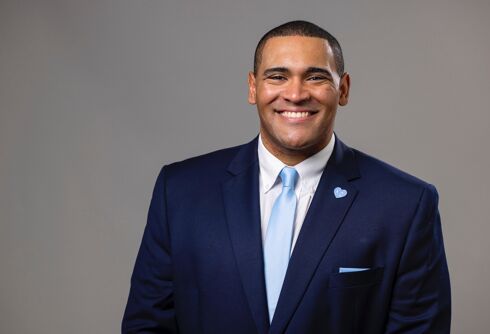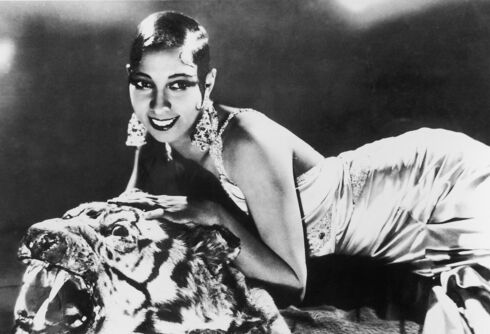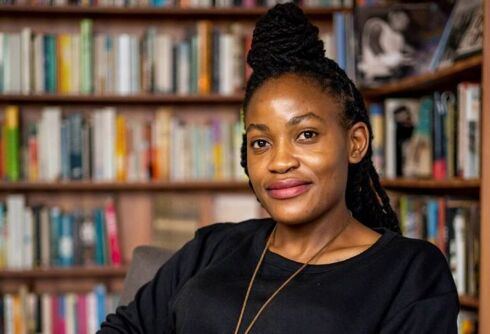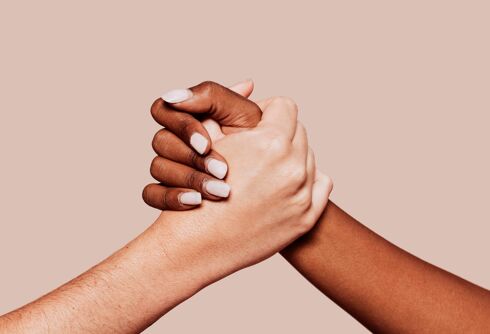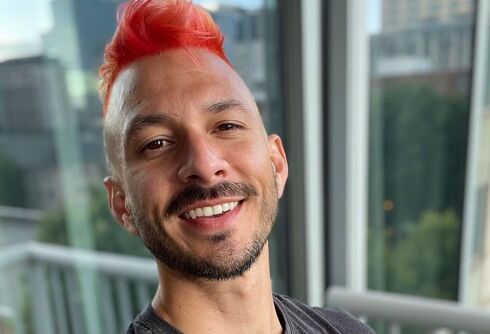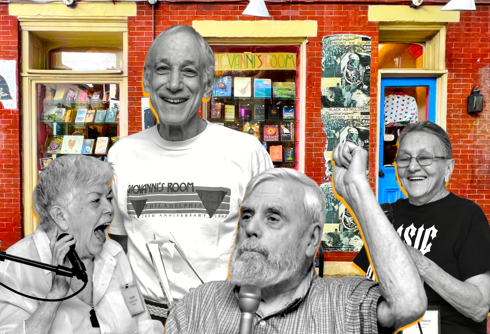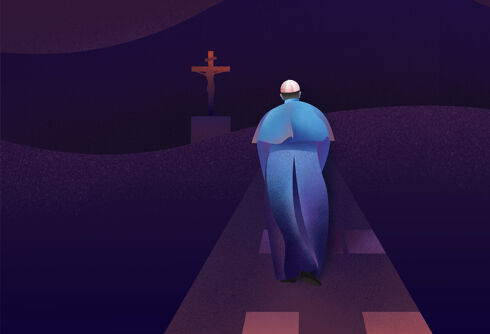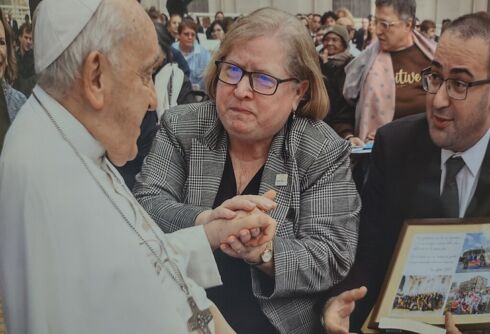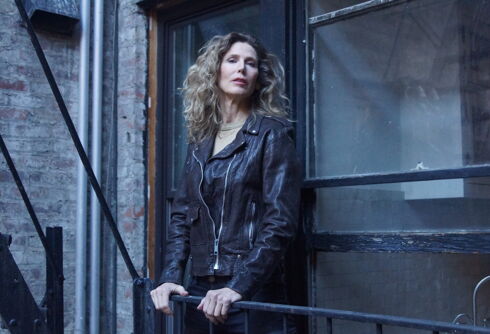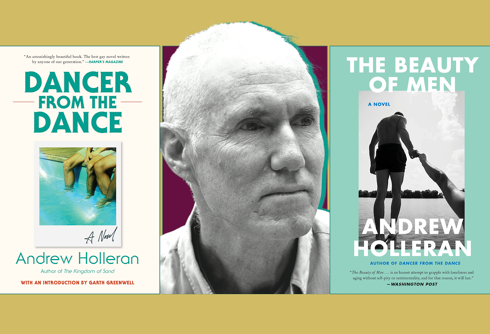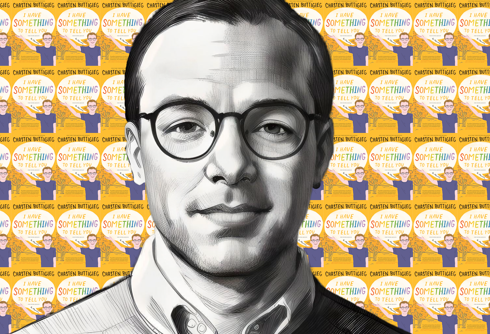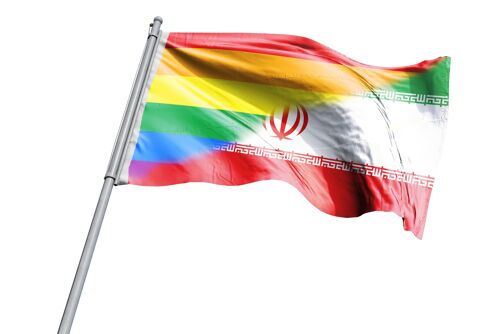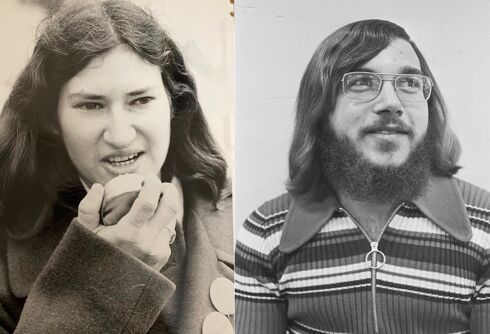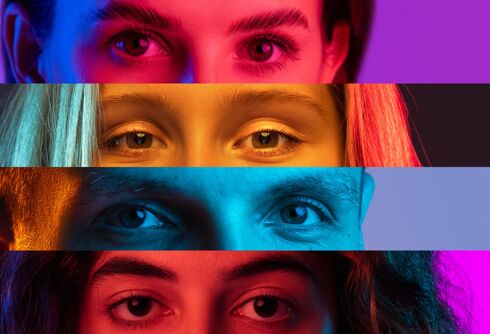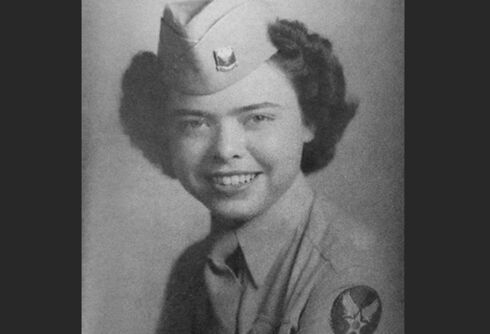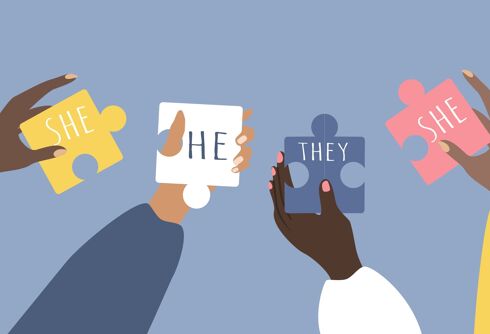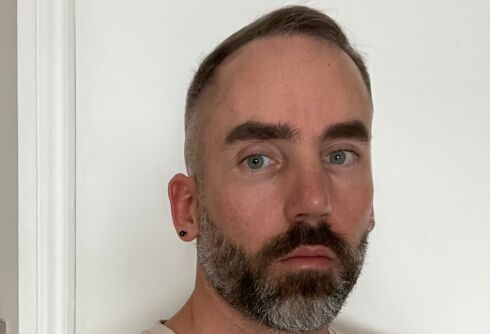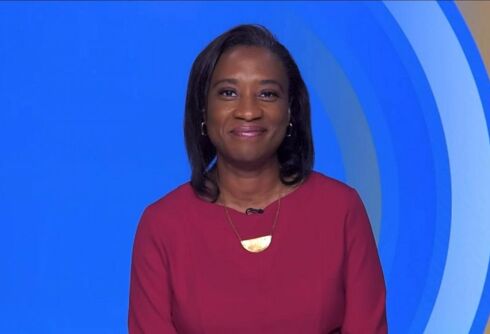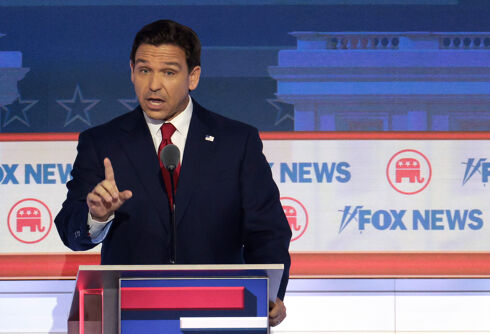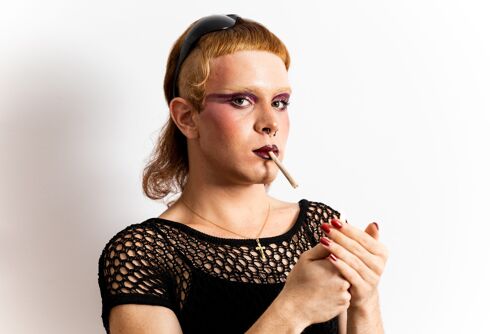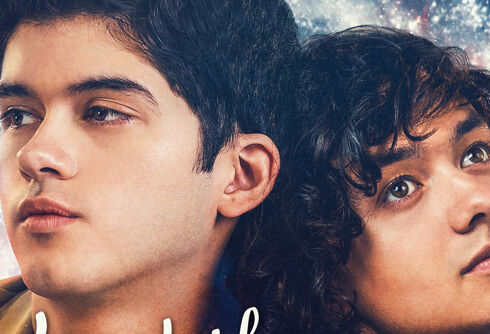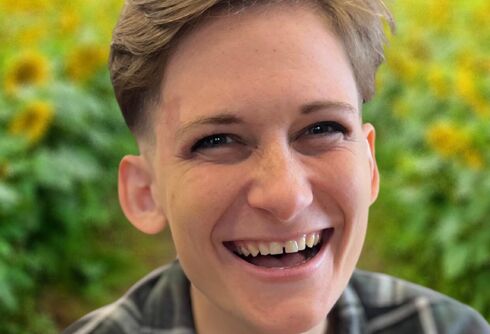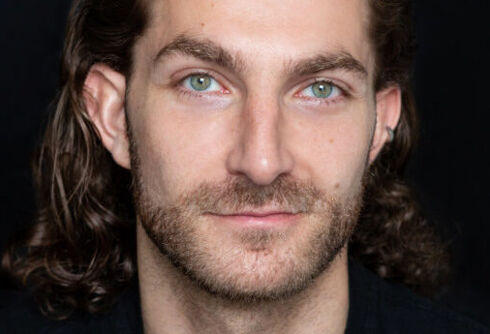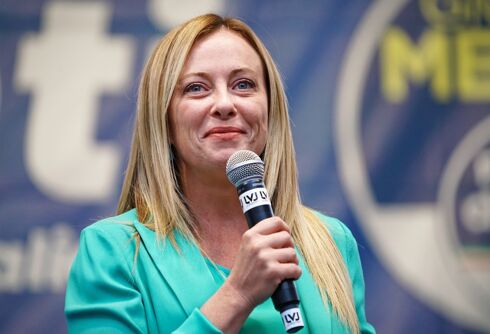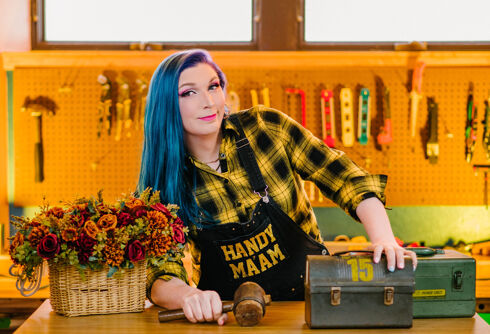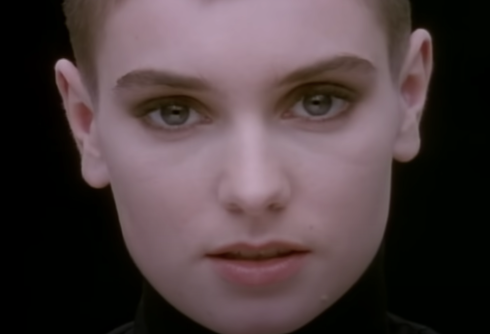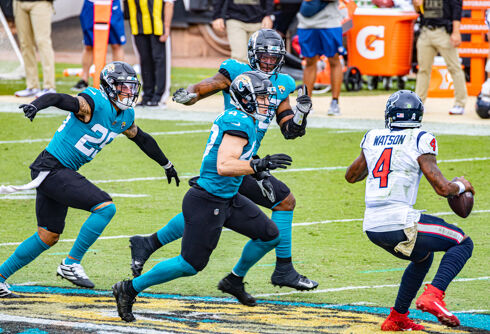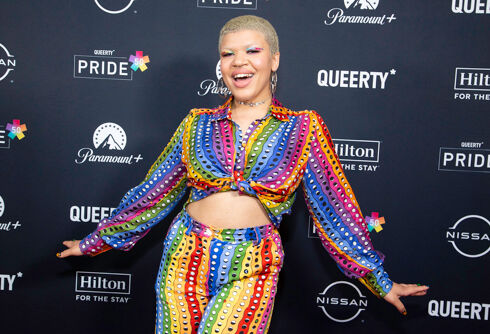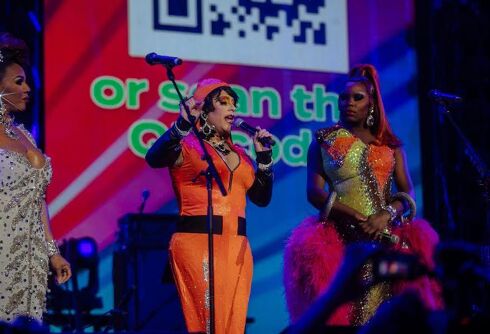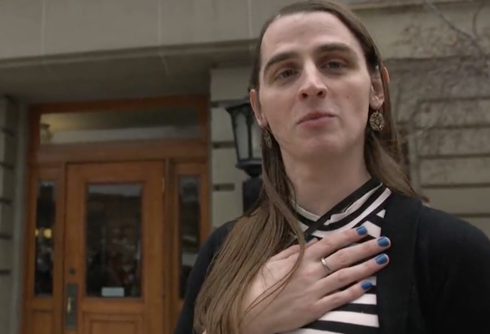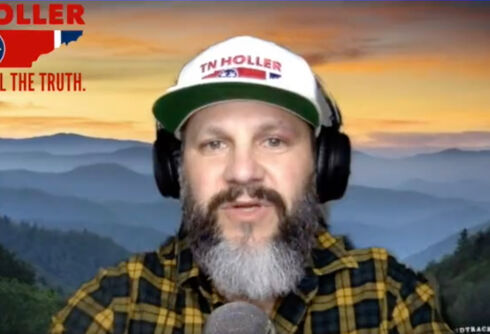Children’s author Seamus Kirst believes the children of LGBTQ+ parents deserve more than picture books telling them their families are valid. While those books are of course crucial (Kirst has even written some of them), queer families also experience everyday challenges that have nothing to do with the parents’ genders. It is these stories, Kirst says, that are sorely lacking in the world of children’s books.
Representation, as we know, is powerful, which is why Kirst recently released Once Upon My Dads’ Divorce, the story of a young boy named Grayson whose two dads have decided to end their marriage. Grayson grapples with grief, confusion, and guilt as he navigates his new life of switching back and forth between homes.
Related:
Children of gay dads are happier & healthier than the children of heterosexual parents
The authors are using the results to advocate against anti-surrogacy laws.
The book is not at all focused on the fact that both of Grayson’s parents are men. It does not establish that their family is normal or beautiful the way it is. Quietly revolutionary, it simply jumps into the story, trusting the reader to accept the underlying premise that Grayson’s family is valid and moving on to their day-to-day problems (and their day-to-day joys).
Never Miss a Beat
Subscribe to our newsletter to stay ahead of the latest LGBTQ+ political news and insights.
On the verge of the book’s release, Kirst spoke with LGBTQ Nation about representation, book banning, and why the bigots will never win.
LGBTQ Nation: What inspired you to write Once Upon My Dads’ Divorce?
SK: I’ve written a few other picture books that feature LGBTQ families, and I started to realize that there’s so much room in the children’s book market for books that are, I don’t want to say simple parenting topics, but the topics that we all grew up reading about, but that just feature queer families.
Every child deserves to see themselves or their family represented in children’s books. For basically the entire history of children’s publishing in the United States, families with same-sex parents have used these social-emotional learning books that always feature heterosexual families. I also want to challenge progressive allies to teach some of these topics using families that don’t necessarily look like their own because I think that’s really important, too. I think it’s important for people to see themselves being represented, and I also think it’s important for people to see characters and families who are different from their own to teach them about all the different types of families that exist and that are equally valid.
LGBTQ Nation: What do you think is the impact of a book like this on a child who has two dads getting divorced as compared to them reading a similar story featuring a mom and dad?
SK: To read a book and really feel like the character or the family on the page is representative or reflective of you and your own family adds so much significance. When kids are going through these really tough moments like a divorce, not having to have this mental hurdle of being like – okay this is a mom and a dad, but I guess it’s similar to my two dads, – is really powerful and validates their experience. It makes it easier to get to the core of the message of the book, which is not actually about who the parents are that are getting divorced, but about what the child is going through.
LGBTQ Nation: What message do you most hope your book sends to kids, and of course, the ones who need it most?
SK: I think a lot of times kids feel really alone when it’s happening and like no one else could really understand. I want people to take away that they’re not alone in this at all, that a lot of people go through it. And also things do get better; you start to get used to your new reality.
I also think a lot of kids [think this is their fault], and they think of times that they acted out or felt, in retrospect, like maybe they were difficult and caused tension between their parents. I think another really important takeaway for kids is that it’s not ever their fault.
LGBTQ Nation: Your books have been banned in the past. What keeps you writing more of these stories, despite all the challenges that come with it?
SK: The more that my books – and books in general – are banned and challenged, the more I want to create these books.
When there’s this movement of people who are trying to silence and erase queer parents and queer kids and queer teachers with these don’t say gay laws… it’s just so inspiring to try to get another book out there and try to get the books that are already out there that have queer representation into the hands of kids and parents and teachers and school libraries across the country.
This movement to silence us is always in full motion, so it feels like there’s a constant call to action. I really do believe that there are many, many more people who believe in representation and who celebrate diversity than there are people who want to silence it… A lot of times, people who have these oppressive ideologies are disproportionately empowered, which means it’s even more important to try and change that and keep fighting.
LGBTQ Nation: In the three years since you published Papa, Daddy, and Riley, how have you seen the right-wing book ban movement evolve?
SK: It seems like it’s gotten a lot more organized, and obviously, it’s gotten a lot more press, which I think has helped it in many ways. But I think it’s also hurt it because now more people are like, “What the hell? I don’t want the books with representation to be banned from my child’s school.”
When you look at the number of books that are banned, the numbers have just gone up so much. But seems like there are so many people trying to challenge books. When you actually look at it, it’s a small group of people who are blanket challenging and trying to ban these huge numbers of books. And they sometimes have a lot of success at it.
It’s always really inspiring when you hear about people who are getting involved to push back.
LGBTQ Nation: Kids today regularly hear discussions about whether or not LGBTQ+ topics are appropriate, and as such they’re learning at the very least that this is a controversial topic. What would you say to the kids who are watching this battle play out?
SK: I want those kids to know that the adults who are saying it’s a controversial topic and who are trying to erase their representation from books are wrong and that they’re not going to win because you can’t erase queer people. There are queer kids and queer parents and teachers at every single school. These laws are so misguided and cruel, and they’re not going to win.
There’s such a movement of people who support those kids and who love them and appreciate their families and their lived experiences. That movement of people is going to win. They shouldn’t have to feel like their identity is controversial, and there are a lot of people fighting for them.
LGBTQ Nation: Is there anything else you want us to know about your book?
SK: My first book, Papa, Daddy, and Riley, was very much focused on talking about… how having two dads is valid, and then it also went into a bunch of different family structures because it’s really important to me to try to have as much representation as possible. But it’s really exciting to me now to also be doing more – matter-of-fact representation is kind of what I like to call it – where it’s like, the book isn’t about the fact that Grayson has two dads that are getting divorced. It’s just that he has parents who are getting divorced who are two dads. I love being able to write books now that go into that and not having to explain that that’s valid in the beginning.
LGBTQ Nation: So with backlash also comes progress.
SK: Definitely. That’s what’s so crazy about living in such a polarized country. There is a lot of exciting progress happening while there’s regression happening. And that’s why sometimes it feels so disorienting.


